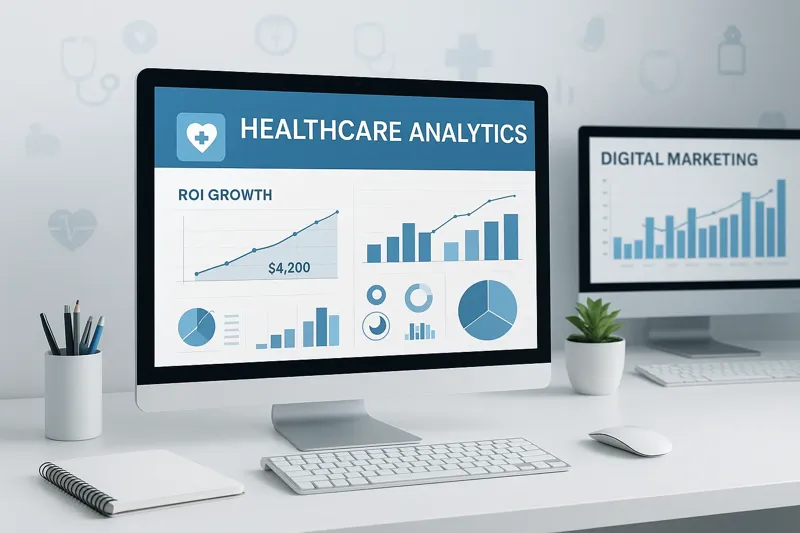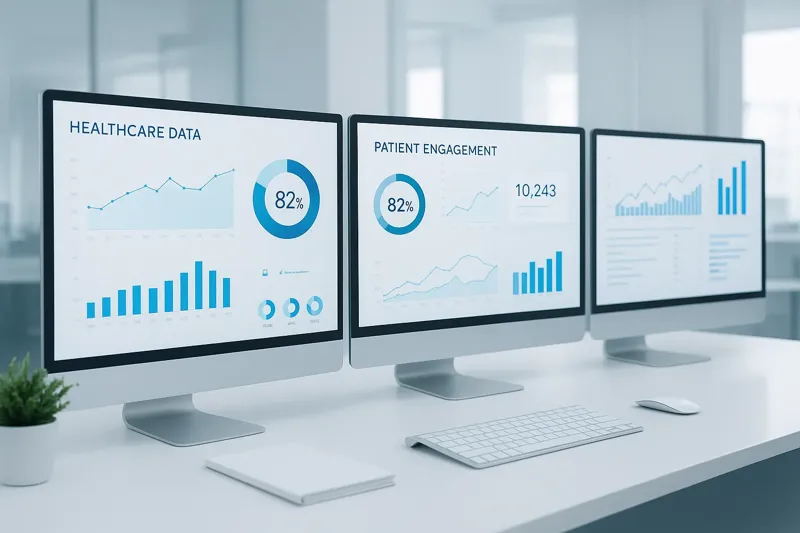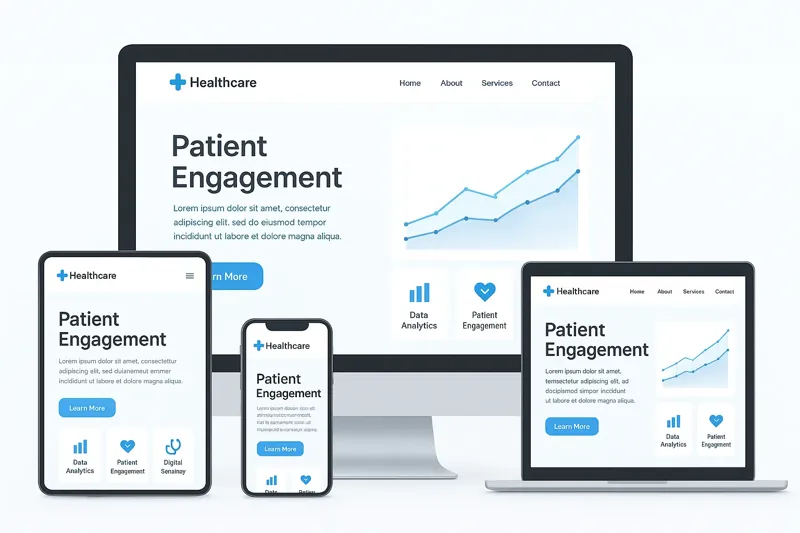The Evolution of Paid Search Advertising
With digital advertising spending projected to exceed $740 billion globally in 2024, paid search remains a cornerstone of marketers' strategies. However, the paid search landscape is undergoing rapid change fueled by rising costs, revolutionary technology, shifting user behaviors, and growing privacy concerns. This article explores the key data, trends, and strategic insights shaping the future of paid search advertising as we move toward 2025 and beyond.
Emerging Trends and Innovations Reshaping Paid Search in 2025
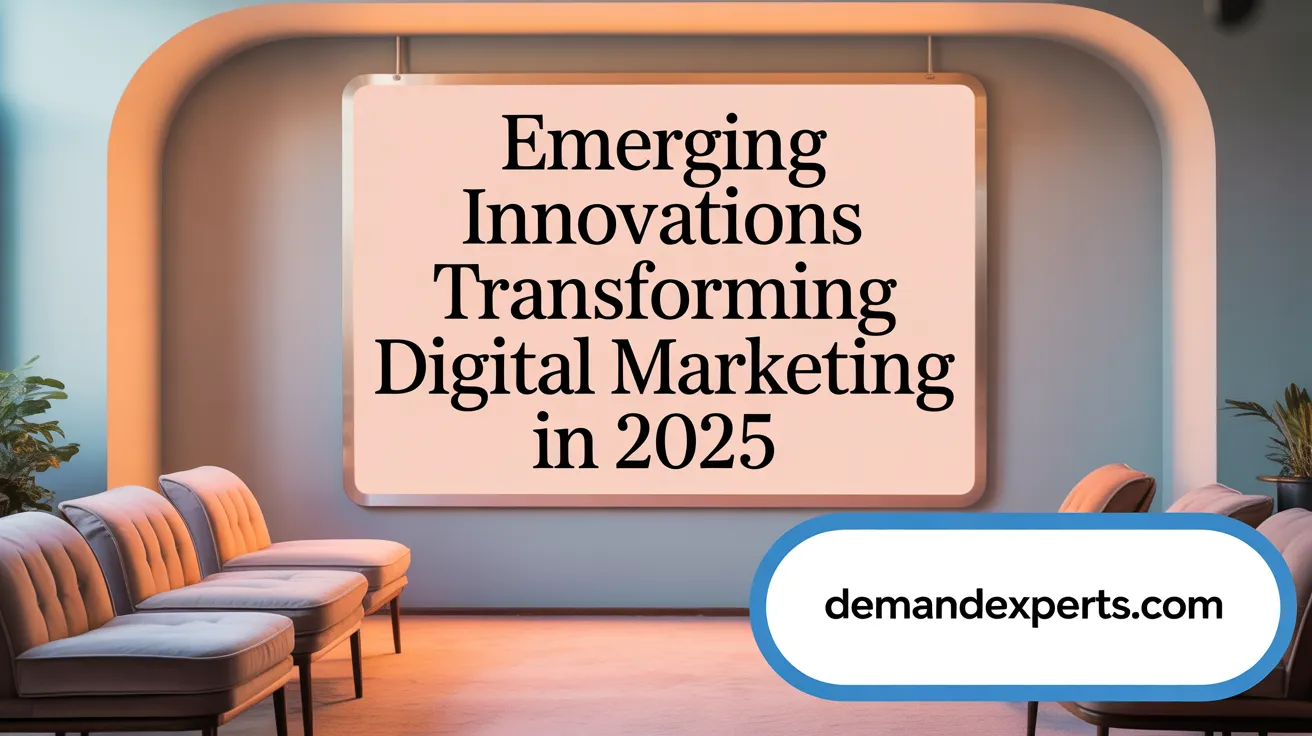
What are the emerging trends and future developments in paid search advertising?
As we look into 2025, paid search advertising is undergoing a dynamic transformation driven by technological advances and shifting consumer behaviors. One of the most prominent trends is the widespread adoption of AI-powered automation and smart bidding strategies. These tools automate campaign management, enabling marketers to optimize bids and ad variations in real time for better conversions and return on ad spend (ROAS). This increased automation reduces manual effort while improving campaign efficiency.
Privacy regulations are also shaping the future of paid search. Marketers are moving towards privacy-first targeting methods, emphasizing contextual advertising, and relying more heavily on first-party data. This shift is a response to the decline of third-party cookies, with companies investing in consent management and innovative data collection techniques to maintain targeting accuracy.
Visual and voice search are rapidly gaining popularity, encouraging advertisers to create richer visual content metadata and adapt SEO strategies for natural language queries. With nearly half of all searches projected to be voice-based by 2025, optimizing for conversational keywords and developing voice-friendly content are becoming essential.
Diversification across platforms beyond Google is crucial. Bing, TikTok, Reddit, and audio channels like podcasts are expanding their share of search and advertising. Brands that diversify their paid search efforts not only reach wider audiences but also mitigate risks associated with over-reliance on a single platform.
Emerging technologies such as Augmented Reality (AR), Virtual Reality (VR), and Web 3.0 are beginning to influence advertising strategies. AR and VR enable immersive ad experiences, allowing consumers to interact with products virtually, which can enhance engagement and conversions. As these technologies become more accessible, integrating them into paid search campaigns will be a key differentiator.
In summary, the future of paid search in 2025 hinges on leveraging AI automation, adapting to privacy regulations with first-party data, embracing new search modalities like voice and visual search, diversifying platform presence, and incorporating immersive tech to create innovative advertising experiences. Marketers who stay ahead of these trends will be better positioned to succeed in an increasingly complex digital landscape.
AI and Machine Learning: The Driving Force Behind Paid Search Evolution
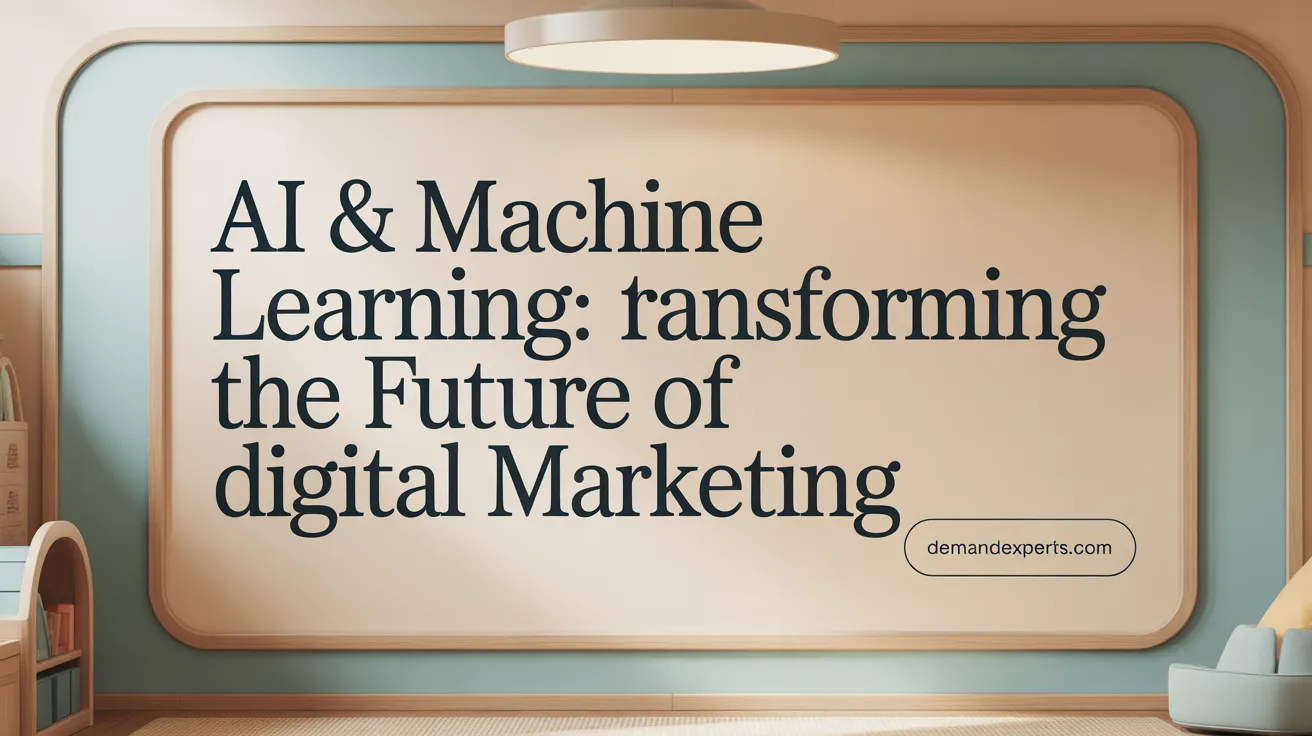
How is AI automation shaping bidding and optimization in paid search?
Artificial intelligence is revolutionizing how advertisers manage their paid search campaigns. AI-driven tools like Google's Performance Max and Smart Bidding automate bidding strategies, budget allocation, and performance optimization in real time. This automation allows for smarter targeting, reduces manual management burdens, and improves overall ROI. Marketers can now leverage predictive analytics to adjust bids dynamically based on user behavior, location, device, and other signals, ensuring their ads reach the most receptive audiences.
What role does generative AI play in transforming search advertisements?
Generative AI, including models like ChatGPT, is creating a new era of search experiences. It generates summaries, provides enriched content, and offers multimedia-enhanced results within search engines. This shift results in less reliance on traditional text ad clicks, prompting advertisers to innovate with more engaging, value-packed content. As generative AI becomes more integrated, search results become more personalized and conversational, changing how ads are designed and delivered.
How are predictive analytics and personalization influencing campaign strategies?
Predictive analytics harness big data and AI to forecast customer behaviors, preferences, and purchase intent. This enables highly personalized ad experiences, improving relevance and engagement. Companies are utilizing first-party data and AI algorithms to tailor messaging at every stage of the customer journey, fostering stronger relationships and higher conversion rates. Such targeted tactics are increasingly essential as consumer expectations for personalized content grow.
What impact do AI-powered tools like Performance Max have on campaign management?
Performance Max campaigns exemplify the integration of AI into PPC management. They enable cross-channel, automated campaign optimization, ensuring that creatives, audience segments, and placements work synergistically. The automation reduces waste, enhances budget efficiency, and allows marketers to focus on strategic planning. These tools provide detailed insights and adapt in real time, aligning campaigns with shifting consumer behaviors and emerging trends.
What are future AI search platforms, and how might they influence consumer behavior?
Emerging AI search platforms and virtual assistants are transforming how consumers access information. Voice search, visual search, and AI chatbots are becoming common, allowing users to find products and services through natural language and images. These platforms tend to prioritize personalized, conversational interactions that influence purchasing decisions subtly and conveniently. As AI search agents grow smarter, consumer journeys will become more seamless, emphasizing the importance for advertisers to adapt and optimize for AI-driven discovery.
In summary, the infusion of AI and machine learning into paid search is creating a more automated, personalized, and efficient digital advertising landscape. Staying ahead requires embracing these innovations, leveraging advanced tools, and understanding evolving consumer behaviors in this rapidly changing environment.
The Future Landscape of PPC Advertising: Automation, Privacy, and Immersive Formats
How is the landscape of pay-per-click (PPC) advertising expected to evolve by 2025 and beyond?
By 2025, PPC advertising will be shaped significantly by advancements in artificial intelligence (AI) and automation. These technologies will allow marketers to optimize campaigns with greater precision, enabling smarter bidding strategies, dynamic creative generation, and real-time adjustments based on user behavior and market conditions.
Automation tools like Google’s Performance Max campaigns are expected to become more sophisticated, unifying multi-channel efforts and providing deeper insights while reducing manual management. AI-driven solutions will also facilitate predictive analytics, helping advertisers anticipate customer actions and personalize ad experiences at scale.
Another major shift involves the decline of third-party cookies, driven by increasing privacy regulations. Advertisers will focus more on first-party data collection and contextual advertising, which respects user privacy while still targeting relevant audiences. This transition promotes the development of privacy-compliant measurement models and enhanced consent management, fostering consumer trust.
Video, visual content, and immersive ad formats like augmented reality (AR) will grow in dominance. Platforms like TikTok, YouTube, and Instagram are already leading the way with engaging, creative formats that include shoppable and AR experiences. These formats boost user engagement and provide interactive opportunities for brands to showcase products in innovative ways.
Voice search optimization will become imperative as projections show that nearly half of all searches will be voice-based by 2025. Marketers will need to tailor their keywords to natural language and develop voice-enabled ad content to capture this expanding segment.
Addressing rising ad costs and stricter privacy regulations will necessitate fostering trust through transparent advertising practices. Advanced attribution models, audience data management, and signals based on first-party data will be vital for maintaining ROI and campaign effectiveness.
Overall, PPC in 2025 will be driven by technological innovation, a prioritization of privacy, and a shift toward richer, more interactive consumer engagements. The evolving landscape demands strategic adaptation, leveraging AI, immersive content, and privacy-centric tactics to stay competitive in a complex digital ecosystem.
Strategic Insights and Predictions for Paid Search Success in 2025 and Beyond

What are the strategic insights and industry predictions for paid search advertising in 2025 and beyond?
Looking ahead to 2025, the landscape of paid search advertising is set to evolve dramatically, driven by technological advancements, changing consumer behaviors, and regulatory shifts. One of the most noticeable trends is the steady increase in cost-per-click (CPC) rates. Data shows that Google Search CPCs rose by 45% from 2024 to 2025, and advertising costs on platforms like LinkedIn and Meta have soared by over 147% and 64%, respectively. To remain competitive, marketers must optimize their ad creatives, refine targeting strategies, and diversify across multiple channels.
Automation and AI will dominate campaign management, making bidding, audience segmentation, and ad personalization smarter and more efficient. Tools like Google's Performance Max are expanding in capabilities, helping advertisers achieve better reach and results with less manual effort. However, as costs rise, full-funnel marketing approaches become essential. Companies should balance brand awareness initiatives with conversion-focused campaigns, ensuring they nurture consumers at every stage of their journey.
The ongoing shift toward privacy-compliant data practices will accelerate; first-party data is becoming more valuable as third-party cookies fade away. Google’s move to new attribution models and measurement tools like GA4 underscores the importance of collecting and leveraging owned data responsibly. Marketers will need to invest in privacy strategies, including consent management and contextual advertising, to sustain personalization efforts.
Video content and hyper-local targeting will play increasingly vital roles. Platforms like YouTube, TikTok, and short-form video platforms will offer immersive, engaging ad formats that capture attention more effectively than static ads. Meanwhile, local and hyper-local targeting will become more sophisticated, enabling advertisers to deliver relevant content based on real-time location data, which is crucial given the surge in 'near me' searches, expected to account for nearly half of all searches by 2025.
Finally, adopting an omnichannel advertising strategy that integrates search, social media, retail media, and emerging platforms will be fundamental. Cross-channel attribution and automation will allow marketers to coordinate messages across channels seamlessly, optimize spend dynamically, and better understand customer journeys.
In summary, paid search in 2025 will be characterized by smarter automation, privacy-aware data strategies, engaging visual content, localized targeting, and an integrated omnichannel approach—building a resilient foundation for sustained growth in a competitive digital landscape.
Market Dynamics and User Behavior Trends Shaping Paid Search Campaigns
What are the recent market analyses and user behavior metrics influencing paid search campaigns?
Recent market analyses reveal significant shifts in the paid search landscape, primarily driven by rising costs and changing consumer behaviors. Cost-per-click (CPC) rates on major platforms like Google Search, LinkedIn, and Meta have surged notably, with Google CPCs increasing by approximately 45% from 2024 to 2025. Similarly, LinkedIn's CPC has climbed 147% year-over-year, and Meta's (Facebook) CPC has risen 64%, alongside over a doubling of CPM rates.
Despite these rising costs, advertisers continue to invest heavily in paid search. In Q4 2023 alone, US search ad spend grew by 4% year-over-year, reaching nearly $125 billion, though search impressions declined by 15%. This indicates a strategic shift toward more targeted, value-driven campaigns amid decreasing organic visibility.
User engagement metrics further highlight evolving consumer habits. Click growth has decreased by 8% YoY in Q4 2023, with retail-specific clicks down by 12%. Consumers are increasingly hesitant to click on paid ads, often due to AI tools highlighting results without the need for clicks, and a growing skepticism towards advertising relevance.
Furthermore, ad costs on retail media platforms surpass traditional search, with CPCs on Amazon averaging $1.50 compared to Google's $1.16. Amazon's ad revenues are expanding at a brisk pace of over 17%, signaling a shift towards retail media as a lucrative ad channel.
Marketers utilize a broad set of metrics—including impressions, CTR, conversion rates, ROAS, and engagement signals—from tools like Google Analytics 4 and third-party platforms. Analyzing these data points helps refine keyword strategies, optimize ad placements, and improve audience targeting.
In summary, the combination of rising CPCs, declining clicks, and increased ad spend underlines the need for more sophisticated, data-driven approaches in paid search. Understanding these trends enables advertisers to adjust bids, tailor messaging, and leverage new ad formats to stay competitive in a highly dynamic environment.
How Current Digital Marketing Trends Influence the Paid Search Landscape
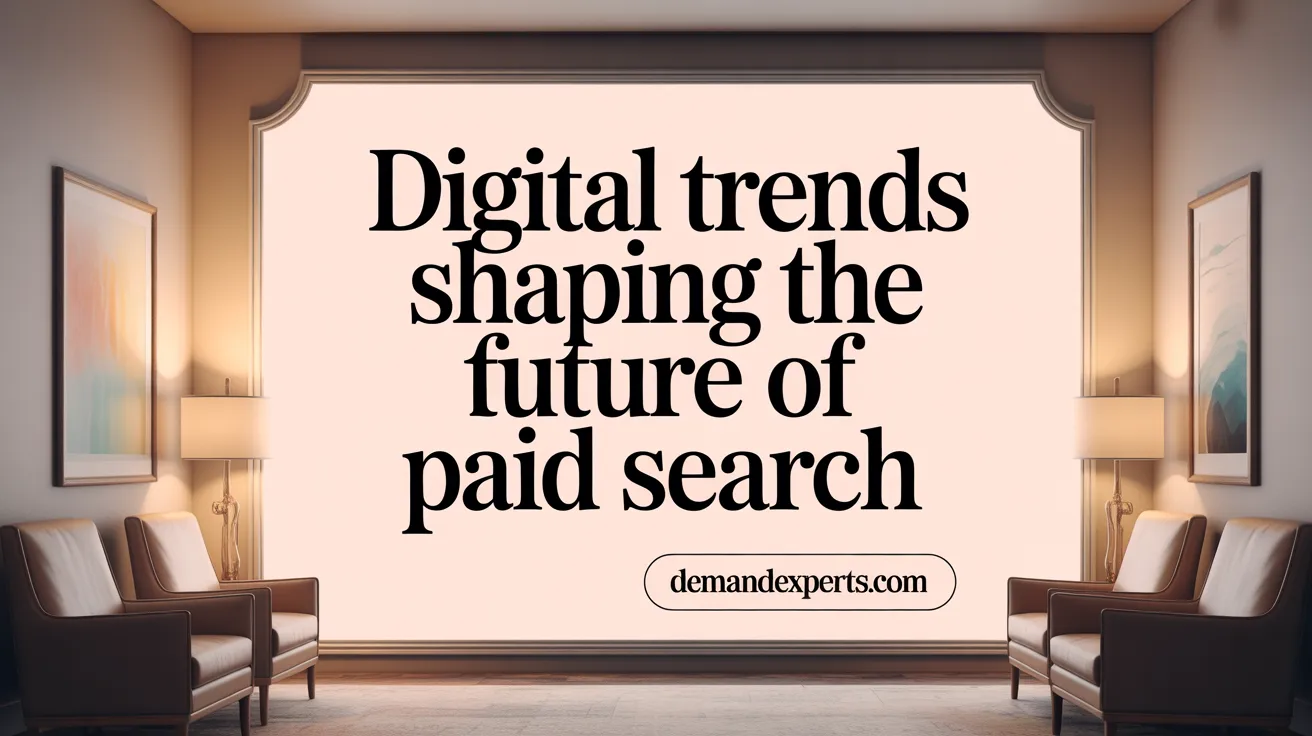
How do overall digital marketing trends currently influence the paid search advertising landscape?
The realm of paid search advertising is experiencing a major transformation driven by overarching digital marketing trends. One of the most significant changes is the increasing adoption of AI-driven automation. Platforms like Google and Meta are rolling out advanced AI tools that facilitate smarter bidding strategies, predictive audience targeting, and personalized ad creation. This automation allows marketers to optimize campaigns in real-time, scale efforts efficiently, and improve overall ROI.
Simultaneously, the diversification of paid media channels broadens the scope beyond traditional search engines. Platforms such as TikTok, Reddit, and Bing are gaining prominence, providing new avenues for reach and engagement. Bing's market share has grown to over 8%, partly due to AI integrations and privacy-focused features, making it a compelling alternative to Google. TikTok’s rising popularity as a search platform for Gen Z exemplifies how social media is also becoming a critical source of search intent and paid opportunities.
Innovations like Google’s Search Generative Experience (SGE) and visual search are altering how users discover information. Instead of text-based results alone, new features now include multimedia summaries, multisearch, and AI-enhanced snippets, prompting advertisers to adapt their strategies for these evolving formats.
Additionally, the integration of SEO, content marketing, and social search is creating a more cohesive marketing ecosystem. Businesses are now aligning paid search efforts with organic content and social platforms to maximize visibility. Voice and visual search trends further influence keyword strategies, emphasizing longer, natural language phrases and optimized imagery.
Meanwhile, increasing privacy regulations, such as moves away from third-party cookies, compel advertisers to rely more heavily on first-party data and contextual advertising. Rich, authentic ad content, coupled with robust data privacy compliance, is vital for maintaining relevance and engagement.
In essence, these digital marketing developments are making paid search more sophisticated, platform-aware, and personalized. Marketers who adapt by leveraging AI tools, diversifying channels, and emphasizing privacy-compliant, high-quality content are positioning themselves for success in this rapidly evolving landscape.
Shifting Market Shares and Platform Dynamics in Paid Search Advertising
Google’s Market Share Decline in US Search Ads
Google continues to dominate the search advertising space, commanding over 91% of the global search volume market share as of July 2024. Despite its strong position, forecasts indicate that Google’s share in the US search ad market will fall below 50% next year for the first time since 2008. This shift reflects increased competition from emerging platforms and changing consumer behaviors.
Rapid Growth of Amazon’s Search Ad Revenues
Amazon is experiencing remarkable growth in its search advertising revenues, outpacing Google with an increase of 17.6% this year compared to 7.6% for Google. Amazon's share of the US search ad spend is expected to rise to approximately 22.3%, making it a crucial player for marketers looking to diversify their paid media strategies.
Bing’s Growth Through AI Integration and Privacy Focus
Bing’s market share has grown to over 8%, driven by extensive AI integration via partnerships with OpenAI and its adoption of the Edge browser. Additionally, Bing’s emphasis on privacy and data protection appeals to users and advertisers, helping it gain ground in an increasingly privacy-conscious digital landscape.
Emerging Search Platforms Like TikTok, Reddit, and Quora
Platforms such as TikTok, Reddit, and Quora are becoming important for search-related activities. TikTok’s search volume continues to rise, especially among Gen Z, while Reddit appears in over 75% of search results, and Quora features in over 35%. These platforms leverage user-generated content and community engagement, presenting new opportunities for targeted advertising.
Cross-Channel Attribution and Retail Media Partnerships
The future of paid search is leaning toward integrated, full-funnel campaigns across multiple channels. Cross-channel attribution will facilitate seamless tracking of customer journeys from social media to retail media and search. Partnerships between Google, Microsoft, and retail ecosystems are enhancing audience targeting, sponsored products, and programmatic advertising, further transforming digital marketing dynamics.
Technology-Driven Enhancements in Paid Search Measurement and Creative Strategies

How are advancements in measurement with GA4 and enhanced conversions shaping paid search in 2025?
Google Analytics 4 (GA4) has revolutionized how marketers track and analyze campaign performance. Its enhanced conversions feature improves tracking accuracy by using hashed first-party customer data, crucial as third-party cookies decline. This technology allows for more precise attribution, helping marketers understand which ads and keywords generate the best ROI.
What role do automation tools like Performance Max play in optimizing campaigns?
Performance Max campaigns utilize AI-driven automation to streamline ad management across multiple channels. They offer real-time bidding, automated creative variation, and comprehensive performance insights. This reduces manual effort and prevents budget waste, making campaigns more efficient and scalable.
How is creative testing and audience alignment evolving?
Automation tools enable rapid A/B testing of ad creatives and refine audience segments based on behavioral data. Marketers can now generate many creative variations automatically, with AI optimizing which ads perform best for specific audience groups. This alignment enhances engagement and conversion rates.
Why is the integration of first-party data so important?
With rising privacy regulations, first-party data has gained importance for targeted advertising. Brands collecting their own data can personalize ads more effectively, reduce reliance on third-party cookies, and build stronger customer relationships. Advanced analytics help leverage this data for better segment targeting and messaging.
What emerging ad formats are influencing paid search strategies?
Video ads across platforms like YouTube and TikTok continue to grow, providing engaging visual content. Interactive ads incorporating AR and VR are becoming more common, offering immersive experiences that boost consumer interaction. Additionally, multisearch and AI-summaries are enhancing search results, making ads more informative and appealing.
| Technology Focus | Description | Impact on Paid Search |
|---|---|---|
| Enhanced Conversions | Using hashed first-party data for accurate tracking | Better attribution and targeting |
| Performance Max | AI-automated multi-channel campaigns | Efficiency and reach |
| Creative Automation | Auto-generation of ad variations | Higher engagement and testing speed |
| First-party Data | Customer data owned by brands | Personalized experiences |
| New Ad Formats | Video, AR, multisearch | Increased consumer engagement |
Staying ahead in paid search in 2025 means embracing these technological innovations. They enable more precise measurement, creative flexibility, and personalized targeting, ultimately driving better results in a competitive landscape.
Looking Ahead: Preparing for the Future of Paid Search
Paid search advertising stands at a pivotal crossroads in 2025, shaped by the interplay of advanced AI technologies, evolving privacy frameworks, shifting user behaviors, and a more diverse ecosystem of platforms. While rising costs and competition present challenges, they also underscore the importance of smarter automation, first-party data utilization, and full-funnel campaign strategies. Advertisers who embrace innovative ad formats such as video and AR, while adapting creatively to AI-generated search environments, will be well-positioned to capture audience attention and maximize ROI. The future of paid search demands agility, strategic diversification, and a commitment to privacy-compliant, personalized advertising — key factors that will define success in the dynamic digital advertising landscape ahead.
References
- 4 PPC trends to monitor closely in the second half of 2025
- Exclusive data: 4 trends in paid search advertising - eMarketer
- Shaping the Future of Advertising: An In-depth Analysis of PPC Scope
- Insights into Google Ads Trends for 2025 | Redemption Digital
- The Future of Paid Media Advertising: Trends to Watch in 2025
- What Is The Future of Paid Search Advertising?
- The Future of Search Advertising in 2024: A Shifting Landscape
- Why Marketers Should Be Excited About Paid Search in 2025
The Evolution of Paid Search Advertising
With digital advertising spending projected to exceed $740 billion globally in 2024, paid search remains a cornerstone of marketers' strategies. However, the paid search landscape is undergoing rapid change fueled by rising costs, revolutionary technology, shifting user behaviors, and growing privacy concerns. This article explores the key data, trends, and strategic insights shaping the future of paid search advertising as we move toward 2025 and beyond.
Emerging Trends and Innovations Reshaping Paid Search in 2025

What are the emerging trends and future developments in paid search advertising?
As we look into 2025, paid search advertising is undergoing a dynamic transformation driven by technological advances and shifting consumer behaviors. One of the most prominent trends is the widespread adoption of AI-powered automation and smart bidding strategies. These tools automate campaign management, enabling marketers to optimize bids and ad variations in real time for better conversions and return on ad spend (ROAS). This increased automation reduces manual effort while improving campaign efficiency.
Privacy regulations are also shaping the future of paid search. Marketers are moving towards privacy-first targeting methods, emphasizing contextual advertising, and relying more heavily on first-party data. This shift is a response to the decline of third-party cookies, with companies investing in consent management and innovative data collection techniques to maintain targeting accuracy.
Visual and voice search are rapidly gaining popularity, encouraging advertisers to create richer visual content metadata and adapt SEO strategies for natural language queries. With nearly half of all searches projected to be voice-based by 2025, optimizing for conversational keywords and developing voice-friendly content are becoming essential.
Diversification across platforms beyond Google is crucial. Bing, TikTok, Reddit, and audio channels like podcasts are expanding their share of search and advertising. Brands that diversify their paid search efforts not only reach wider audiences but also mitigate risks associated with over-reliance on a single platform.
Emerging technologies such as Augmented Reality (AR), Virtual Reality (VR), and Web 3.0 are beginning to influence advertising strategies. AR and VR enable immersive ad experiences, allowing consumers to interact with products virtually, which can enhance engagement and conversions. As these technologies become more accessible, integrating them into paid search campaigns will be a key differentiator.
In summary, the future of paid search in 2025 hinges on leveraging AI automation, adapting to privacy regulations with first-party data, embracing new search modalities like voice and visual search, diversifying platform presence, and incorporating immersive tech to create innovative advertising experiences. Marketers who stay ahead of these trends will be better positioned to succeed in an increasingly complex digital landscape.
AI and Machine Learning: The Driving Force Behind Paid Search Evolution

How is AI automation shaping bidding and optimization in paid search?
Artificial intelligence is revolutionizing how advertisers manage their paid search campaigns. AI-driven tools like Google's Performance Max and Smart Bidding automate bidding strategies, budget allocation, and performance optimization in real time. This automation allows for smarter targeting, reduces manual management burdens, and improves overall ROI. Marketers can now leverage predictive analytics to adjust bids dynamically based on user behavior, location, device, and other signals, ensuring their ads reach the most receptive audiences.
What role does generative AI play in transforming search advertisements?
Generative AI, including models like ChatGPT, is creating a new era of search experiences. It generates summaries, provides enriched content, and offers multimedia-enhanced results within search engines. This shift results in less reliance on traditional text ad clicks, prompting advertisers to innovate with more engaging, value-packed content. As generative AI becomes more integrated, search results become more personalized and conversational, changing how ads are designed and delivered.
How are predictive analytics and personalization influencing campaign strategies?
Predictive analytics harness big data and AI to forecast customer behaviors, preferences, and purchase intent. This enables highly personalized ad experiences, improving relevance and engagement. Companies are utilizing first-party data and AI algorithms to tailor messaging at every stage of the customer journey, fostering stronger relationships and higher conversion rates. Such targeted tactics are increasingly essential as consumer expectations for personalized content grow.
What impact do AI-powered tools like Performance Max have on campaign management?
Performance Max campaigns exemplify the integration of AI into PPC management. They enable cross-channel, automated campaign optimization, ensuring that creatives, audience segments, and placements work synergistically. The automation reduces waste, enhances budget efficiency, and allows marketers to focus on strategic planning. These tools provide detailed insights and adapt in real time, aligning campaigns with shifting consumer behaviors and emerging trends.
What are future AI search platforms, and how might they influence consumer behavior?
Emerging AI search platforms and virtual assistants are transforming how consumers access information. Voice search, visual search, and AI chatbots are becoming common, allowing users to find products and services through natural language and images. These platforms tend to prioritize personalized, conversational interactions that influence purchasing decisions subtly and conveniently. As AI search agents grow smarter, consumer journeys will become more seamless, emphasizing the importance for advertisers to adapt and optimize for AI-driven discovery.
In summary, the infusion of AI and machine learning into paid search is creating a more automated, personalized, and efficient digital advertising landscape. Staying ahead requires embracing these innovations, leveraging advanced tools, and understanding evolving consumer behaviors in this rapidly changing environment.
The Future Landscape of PPC Advertising: Automation, Privacy, and Immersive Formats
How is the landscape of pay-per-click (PPC) advertising expected to evolve by 2025 and beyond?
By 2025, PPC advertising will be shaped significantly by advancements in artificial intelligence (AI) and automation. These technologies will allow marketers to optimize campaigns with greater precision, enabling smarter bidding strategies, dynamic creative generation, and real-time adjustments based on user behavior and market conditions.
Automation tools like Google’s Performance Max campaigns are expected to become more sophisticated, unifying multi-channel efforts and providing deeper insights while reducing manual management. AI-driven solutions will also facilitate predictive analytics, helping advertisers anticipate customer actions and personalize ad experiences at scale.
Another major shift involves the decline of third-party cookies, driven by increasing privacy regulations. Advertisers will focus more on first-party data collection and contextual advertising, which respects user privacy while still targeting relevant audiences. This transition promotes the development of privacy-compliant measurement models and enhanced consent management, fostering consumer trust.
Video, visual content, and immersive ad formats like augmented reality (AR) will grow in dominance. Platforms like TikTok, YouTube, and Instagram are already leading the way with engaging, creative formats that include shoppable and AR experiences. These formats boost user engagement and provide interactive opportunities for brands to showcase products in innovative ways.
Voice search optimization will become imperative as projections show that nearly half of all searches will be voice-based by 2025. Marketers will need to tailor their keywords to natural language and develop voice-enabled ad content to capture this expanding segment.
Addressing rising ad costs and stricter privacy regulations will necessitate fostering trust through transparent advertising practices. Advanced attribution models, audience data management, and signals based on first-party data will be vital for maintaining ROI and campaign effectiveness.
Overall, PPC in 2025 will be driven by technological innovation, a prioritization of privacy, and a shift toward richer, more interactive consumer engagements. The evolving landscape demands strategic adaptation, leveraging AI, immersive content, and privacy-centric tactics to stay competitive in a complex digital ecosystem.
Strategic Insights and Predictions for Paid Search Success in 2025 and Beyond

What are the strategic insights and industry predictions for paid search advertising in 2025 and beyond?
Looking ahead to 2025, the landscape of paid search advertising is set to evolve dramatically, driven by technological advancements, changing consumer behaviors, and regulatory shifts. One of the most noticeable trends is the steady increase in cost-per-click (CPC) rates. Data shows that Google Search CPCs rose by 45% from 2024 to 2025, and advertising costs on platforms like LinkedIn and Meta have soared by over 147% and 64%, respectively. To remain competitive, marketers must optimize their ad creatives, refine targeting strategies, and diversify across multiple channels.
Automation and AI will dominate campaign management, making bidding, audience segmentation, and ad personalization smarter and more efficient. Tools like Google's Performance Max are expanding in capabilities, helping advertisers achieve better reach and results with less manual effort. However, as costs rise, full-funnel marketing approaches become essential. Companies should balance brand awareness initiatives with conversion-focused campaigns, ensuring they nurture consumers at every stage of their journey.
The ongoing shift toward privacy-compliant data practices will accelerate; first-party data is becoming more valuable as third-party cookies fade away. Google’s move to new attribution models and measurement tools like GA4 underscores the importance of collecting and leveraging owned data responsibly. Marketers will need to invest in privacy strategies, including consent management and contextual advertising, to sustain personalization efforts.
Video content and hyper-local targeting will play increasingly vital roles. Platforms like YouTube, TikTok, and short-form video platforms will offer immersive, engaging ad formats that capture attention more effectively than static ads. Meanwhile, local and hyper-local targeting will become more sophisticated, enabling advertisers to deliver relevant content based on real-time location data, which is crucial given the surge in 'near me' searches, expected to account for nearly half of all searches by 2025.
Finally, adopting an omnichannel advertising strategy that integrates search, social media, retail media, and emerging platforms will be fundamental. Cross-channel attribution and automation will allow marketers to coordinate messages across channels seamlessly, optimize spend dynamically, and better understand customer journeys.
In summary, paid search in 2025 will be characterized by smarter automation, privacy-aware data strategies, engaging visual content, localized targeting, and an integrated omnichannel approach—building a resilient foundation for sustained growth in a competitive digital landscape.
Market Dynamics and User Behavior Trends Shaping Paid Search Campaigns
What are the recent market analyses and user behavior metrics influencing paid search campaigns?
Recent market analyses reveal significant shifts in the paid search landscape, primarily driven by rising costs and changing consumer behaviors. Cost-per-click (CPC) rates on major platforms like Google Search, LinkedIn, and Meta have surged notably, with Google CPCs increasing by approximately 45% from 2024 to 2025. Similarly, LinkedIn's CPC has climbed 147% year-over-year, and Meta's (Facebook) CPC has risen 64%, alongside over a doubling of CPM rates.
Despite these rising costs, advertisers continue to invest heavily in paid search. In Q4 2023 alone, US search ad spend grew by 4% year-over-year, reaching nearly $125 billion, though search impressions declined by 15%. This indicates a strategic shift toward more targeted, value-driven campaigns amid decreasing organic visibility.
User engagement metrics further highlight evolving consumer habits. Click growth has decreased by 8% YoY in Q4 2023, with retail-specific clicks down by 12%. Consumers are increasingly hesitant to click on paid ads, often due to AI tools highlighting results without the need for clicks, and a growing skepticism towards advertising relevance.
Furthermore, ad costs on retail media platforms surpass traditional search, with CPCs on Amazon averaging $1.50 compared to Google's $1.16. Amazon's ad revenues are expanding at a brisk pace of over 17%, signaling a shift towards retail media as a lucrative ad channel.
Marketers utilize a broad set of metrics—including impressions, CTR, conversion rates, ROAS, and engagement signals—from tools like Google Analytics 4 and third-party platforms. Analyzing these data points helps refine keyword strategies, optimize ad placements, and improve audience targeting.
In summary, the combination of rising CPCs, declining clicks, and increased ad spend underlines the need for more sophisticated, data-driven approaches in paid search. Understanding these trends enables advertisers to adjust bids, tailor messaging, and leverage new ad formats to stay competitive in a highly dynamic environment.
How Current Digital Marketing Trends Influence the Paid Search Landscape

How do overall digital marketing trends currently influence the paid search advertising landscape?
The realm of paid search advertising is experiencing a major transformation driven by overarching digital marketing trends. One of the most significant changes is the increasing adoption of AI-driven automation. Platforms like Google and Meta are rolling out advanced AI tools that facilitate smarter bidding strategies, predictive audience targeting, and personalized ad creation. This automation allows marketers to optimize campaigns in real-time, scale efforts efficiently, and improve overall ROI.
Simultaneously, the diversification of paid media channels broadens the scope beyond traditional search engines. Platforms such as TikTok, Reddit, and Bing are gaining prominence, providing new avenues for reach and engagement. Bing's market share has grown to over 8%, partly due to AI integrations and privacy-focused features, making it a compelling alternative to Google. TikTok’s rising popularity as a search platform for Gen Z exemplifies how social media is also becoming a critical source of search intent and paid opportunities.
Innovations like Google’s Search Generative Experience (SGE) and visual search are altering how users discover information. Instead of text-based results alone, new features now include multimedia summaries, multisearch, and AI-enhanced snippets, prompting advertisers to adapt their strategies for these evolving formats.
Additionally, the integration of SEO, content marketing, and social search is creating a more cohesive marketing ecosystem. Businesses are now aligning paid search efforts with organic content and social platforms to maximize visibility. Voice and visual search trends further influence keyword strategies, emphasizing longer, natural language phrases and optimized imagery.
Meanwhile, increasing privacy regulations, such as moves away from third-party cookies, compel advertisers to rely more heavily on first-party data and contextual advertising. Rich, authentic ad content, coupled with robust data privacy compliance, is vital for maintaining relevance and engagement.
In essence, these digital marketing developments are making paid search more sophisticated, platform-aware, and personalized. Marketers who adapt by leveraging AI tools, diversifying channels, and emphasizing privacy-compliant, high-quality content are positioning themselves for success in this rapidly evolving landscape.
Shifting Market Shares and Platform Dynamics in Paid Search Advertising
Google’s Market Share Decline in US Search Ads
Google continues to dominate the search advertising space, commanding over 91% of the global search volume market share as of July 2024. Despite its strong position, forecasts indicate that Google’s share in the US search ad market will fall below 50% next year for the first time since 2008. This shift reflects increased competition from emerging platforms and changing consumer behaviors.
Rapid Growth of Amazon’s Search Ad Revenues
Amazon is experiencing remarkable growth in its search advertising revenues, outpacing Google with an increase of 17.6% this year compared to 7.6% for Google. Amazon's share of the US search ad spend is expected to rise to approximately 22.3%, making it a crucial player for marketers looking to diversify their paid media strategies.
Bing’s Growth Through AI Integration and Privacy Focus
Bing’s market share has grown to over 8%, driven by extensive AI integration via partnerships with OpenAI and its adoption of the Edge browser. Additionally, Bing’s emphasis on privacy and data protection appeals to users and advertisers, helping it gain ground in an increasingly privacy-conscious digital landscape.
Emerging Search Platforms Like TikTok, Reddit, and Quora
Platforms such as TikTok, Reddit, and Quora are becoming important for search-related activities. TikTok’s search volume continues to rise, especially among Gen Z, while Reddit appears in over 75% of search results, and Quora features in over 35%. These platforms leverage user-generated content and community engagement, presenting new opportunities for targeted advertising.
Cross-Channel Attribution and Retail Media Partnerships
The future of paid search is leaning toward integrated, full-funnel campaigns across multiple channels. Cross-channel attribution will facilitate seamless tracking of customer journeys from social media to retail media and search. Partnerships between Google, Microsoft, and retail ecosystems are enhancing audience targeting, sponsored products, and programmatic advertising, further transforming digital marketing dynamics.
Technology-Driven Enhancements in Paid Search Measurement and Creative Strategies

How are advancements in measurement with GA4 and enhanced conversions shaping paid search in 2025?
Google Analytics 4 (GA4) has revolutionized how marketers track and analyze campaign performance. Its enhanced conversions feature improves tracking accuracy by using hashed first-party customer data, crucial as third-party cookies decline. This technology allows for more precise attribution, helping marketers understand which ads and keywords generate the best ROI.
What role do automation tools like Performance Max play in optimizing campaigns?
Performance Max campaigns utilize AI-driven automation to streamline ad management across multiple channels. They offer real-time bidding, automated creative variation, and comprehensive performance insights. This reduces manual effort and prevents budget waste, making campaigns more efficient and scalable.
How is creative testing and audience alignment evolving?
Automation tools enable rapid A/B testing of ad creatives and refine audience segments based on behavioral data. Marketers can now generate many creative variations automatically, with AI optimizing which ads perform best for specific audience groups. This alignment enhances engagement and conversion rates.
Why is the integration of first-party data so important?
With rising privacy regulations, first-party data has gained importance for targeted advertising. Brands collecting their own data can personalize ads more effectively, reduce reliance on third-party cookies, and build stronger customer relationships. Advanced analytics help leverage this data for better segment targeting and messaging.
What emerging ad formats are influencing paid search strategies?
Video ads across platforms like YouTube and TikTok continue to grow, providing engaging visual content. Interactive ads incorporating AR and VR are becoming more common, offering immersive experiences that boost consumer interaction. Additionally, multisearch and AI-summaries are enhancing search results, making ads more informative and appealing.
| Technology Focus | Description | Impact on Paid Search |
|---|---|---|
| Enhanced Conversions | Using hashed first-party data for accurate tracking | Better attribution and targeting |
| Performance Max | AI-automated multi-channel campaigns | Efficiency and reach |
| Creative Automation | Auto-generation of ad variations | Higher engagement and testing speed |
| First-party Data | Customer data owned by brands | Personalized experiences |
| New Ad Formats | Video, AR, multisearch | Increased consumer engagement |
Staying ahead in paid search in 2025 means embracing these technological innovations. They enable more precise measurement, creative flexibility, and personalized targeting, ultimately driving better results in a competitive landscape.
Looking Ahead: Preparing for the Future of Paid Search
Paid search advertising stands at a pivotal crossroads in 2025, shaped by the interplay of advanced AI technologies, evolving privacy frameworks, shifting user behaviors, and a more diverse ecosystem of platforms. While rising costs and competition present challenges, they also underscore the importance of smarter automation, first-party data utilization, and full-funnel campaign strategies. Advertisers who embrace innovative ad formats such as video and AR, while adapting creatively to AI-generated search environments, will be well-positioned to capture audience attention and maximize ROI. The future of paid search demands agility, strategic diversification, and a commitment to privacy-compliant, personalized advertising — key factors that will define success in the dynamic digital advertising landscape ahead.
References
- 4 PPC trends to monitor closely in the second half of 2025
- Exclusive data: 4 trends in paid search advertising - eMarketer
- Shaping the Future of Advertising: An In-depth Analysis of PPC Scope
- Insights into Google Ads Trends for 2025 | Redemption Digital
- The Future of Paid Media Advertising: Trends to Watch in 2025
- What Is The Future of Paid Search Advertising?
- The Future of Search Advertising in 2024: A Shifting Landscape
- Why Marketers Should Be Excited About Paid Search in 2025



